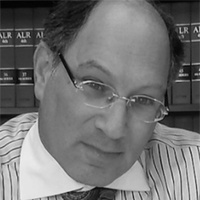Pylesville White Collar Crime Lawyer, Maryland
Sponsored Law Firm
-
 x
x

Click For More Info:
-
Isaac Klein Attorney at Law
1 N Charles Street Suite 350 Baltimore, MD 21201» view mapAccident & Injury Law You Need Isaac To Defend You!
Issac Klein has been serving the citizens of Maryland since opening his practice in 1982. If your claim cannot be settled for a fair amount, he can prepare to file suit and go to trial.
800-768-4560
FREE CONSULTATION
CONTACTGeoffrey Giles Hengerer
Energy, Litigation, White Collar Crime, Construction
Status: In Good Standing Licensed: 22 Years
Erin Murphy
State Appellate Practice, Domestic Violence & Neglect, White Collar Crime, Civil Rights
Status: In Good Standing
Arthur Edward Mcgreevy
Mediation, Lawsuit & Dispute, White Collar Crime, Criminal
Status: In Good Standing
William Alden McDaniel
Military & Veterans Appeals, Litigation, Arbitration, White Collar Crime
Status: In Good Standing
Sarah Farrar Lacey
Litigation, Copyright, White Collar Crime
Status: In Good Standing Licensed: 16 Years
John Stephen Linehan
Food & Drug Administration, White Collar Crime, Life & Health
Status: In Good Standing Licensed: 18 Years
 Isaac Klein Baltimore, MD
Isaac Klein Baltimore, MD Practice AreasExpertise
Practice AreasExpertise
